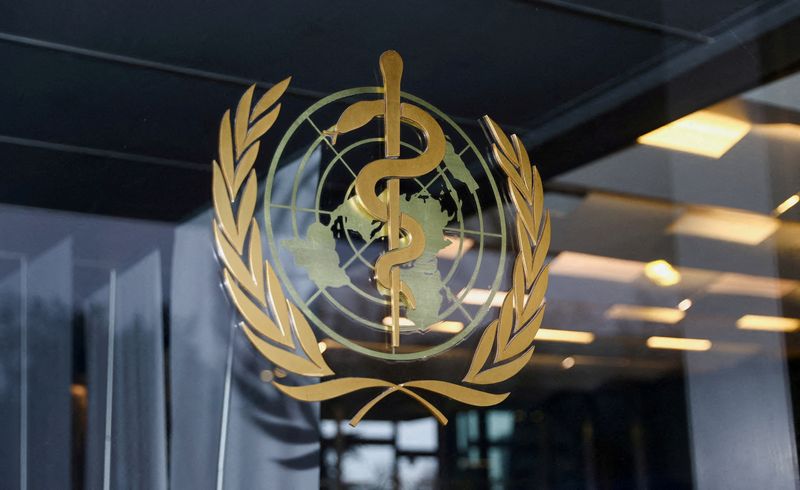By Francesco Guarascio and Emma Farge
BRUSSELS/GENEVA (Reuters) - U.S. financial contributions to the World Health Organization (WHO) have fallen by 25% during the coronavirus pandemic, provisional data show, with Washington's future support to the United Nations agency under review.
The large drop in funding versus the previous two-year period arose from cuts decided by former U.S. President Donald Trump that reveal for the first time the scale of the Trump administration's retreat from the U.N. body.
U.S. funds are set to go up again in the WHO's next two-year budget following new pledges in December including $280 million by President Joe Biden's administration. However, the Biden administration has also raised doubts about Washington's future support to the global organisation.
The U.N. agency did with over $200 million less from the United States in 2020 and 2021, according to provisional WHO data contained in a budget document reviewed by Reuters that has not yet been made public, though it managed to raise more funds from other donors which enabled an increase of its total budget.
Washington paid $672 million to the WHO for its latest two-year budget, down from $893 million in 2018-19, the provisional data showed.
As a result, the United States is no longer the WHO's top donor, with Germany having replaced it gradually through transfers of more than a billion dollars over the last two years.
Graphic: WHO funding - https://graphics.reuters.com/HEALTH-CORONAVIRUS/zdpxoqlqwvx/chart.png
The U.S. State Department did not immediately respond to a request for comment. A WHO spokesperson did not immediately provide an official comment.
The Bill and Melinda Gates Foundation is the third largest donor to the WHO, with $584 million in 2020-21, largely spent on a global programme to eradicate polio. The foundation did not immediately reply for a request for comment.
Over the past two years, U.S. funds went down mostly in 2020 - Trump's last full year in the White House - amid a sharp fall in so-called voluntary contributions.
Funding doubled in 2021 when Biden took over, but the increase was not enough to fully restore the U.S. financing level compared to previous periods.
Trump cut funding and moved to withdraw the United States from the WHO, accusing it of being too close to China and having mismanaged the first phase of the pandemic - accusations that the WHO has denied.
The Biden administration brought Washington back into the WHO and vowed to restore funding but has also voiced doubts about the WHO's ability to tackle new challenges, including from China.
INFLEXIBLE FUNDING
Part of the U.S. financial contributions were delayed by the WHO to next year. But even factoring this in, the fall in U.S. funds was still about 20%, WHO data show.
About one-third of U.S. funds were mandatory membership fees, which remained stable compared to past years at around $230 million per biennium.
This is considered by the WHO the best funding because it allows higher flexibility in spending and permits the agency to channel the money to where it is most needed.
But the majority of funding went to areas selected by the U.S. government.
This is part of a wider trend, with the WHO having received in total just less than 20% of its funding in recent years from these mandatory contributions, without strings attached.
The WHO document showed that one of the areas underfunded as of Dec. 21 was country preparation for health emergencies, such as the current pandemic, which is only 73% funded.
WHO Director-General Tedros Adhanom Ghebreyesus reiterated on Tuesday that the current funding structure was restrictive.
"The problem is still whatever we have done is mainly an earmarked budget, so it's not really flexible enough," he told the WHO's Executive Board during a public debate, saying that the current financing model was unsustainable.
The United States is opposing a plan to raise mandatory fees, or assessed contributions, to 50% of the WHO's budget in coming years.
"The U.S. seeks to better understand the current funding mechanisms, efficiencies and decision-making before considering an increase in assessed contributions," U.S. health official Mara Burr told the WHO board on Tuesday, noting Washington supported efforts to address gaps in financing for preparedness.
By far the largest part of the WHO's funding comes from voluntary contributions from states or private donors who decide the sectors or even the projects where they should be used.
This is one factor that has led the Geneva-based agency to delay the use of some of the funds since they could not all immediately be devoted to fighting the pandemic.
(This story refiles to fix typo to 'have' in lede paragraph)
